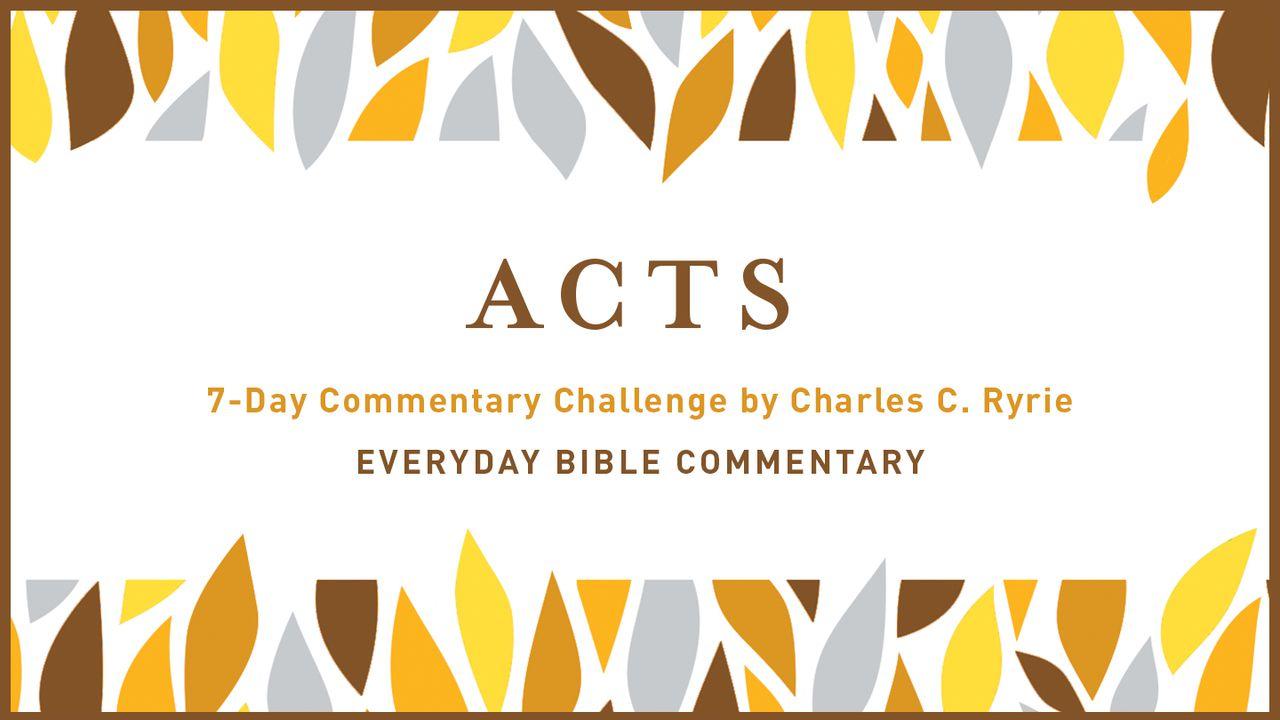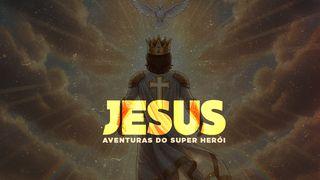7-Day Commentary Challenge - Acts 1-3 Exemplo

THE PROPHECY OF PENTECOST
Pentecost was a divinely planned event prophesied in Leviticus 23. The first of the annual feasts of Israel was Passover, which marked a new beginning for the children of Israel. This was a type of Christ, our Passover Lamb, sacrificed for us (1 Cor. 5:7). The second was the feast of Unleavened Bread, which lasted for seven days and typified the lifelong walk of the believer in separation from evil. Firstfruits was the third feast, a type of the resurrection of Christ (John 12:24; 1 Cor. 15:23). This was followed fifty days later by the feast of Pentecost or, as it was sometimes called, the feast of Weeks because it fell seven (a week of) weeks after Firstfruits. Likewise, fifty days after the resurrection of Christ, the event recorded in Acts 2 occurred.
THE POWER OF PENTECOST
The power of Pentecost is a person, the Holy Spirit of God. Pentecostal power is simply the unhindered working of the Spirit in any life at any time. On the day of Pentecost, He came to baptize the disciples into the body of Christ, thus welding them as a unit into the risen Head of the church (Acts 11:15–16; 1 Cor. 12:13). This is something that is experienced by each individual only once—at the time of his conversion. As other groups of believers were brought into the body of Christ they were baptized by the Spirit (Acts 11:15–16), but each individual experiences this only once (note the aorist tense of the verb in 1 Cor. 12:13). On the day of Pentecost the disciples were also filled with the Spirit (2:4), something that they and all believers may experience repeatedly (cf. 4:31; 6:5; 7:55; 9:17). At Pentecost, too, the Spirit inaugurated His permanent relationship of indwelling all believers in fulfillment of the Savior’s promise recorded in John 14:17. In a very real sense Pentecost was the beginning of the age of the Spirit.
The Evidence of His Coming, 2:1–4
The coming of the Spirit was evinced by wind, fire, and tongues. Strictly speaking it was not wind but a roar or reverberation that filled the house. The literal translation of the phrase in verse 2 is “an echoing sound as of a mighty wind borne violently.” The fire was really what the tongues looked like as they divided themselves over the company, a tongue settling upon the head of each one. Finally the disciples began each to speak in real languages new to the speakers and understood by those from various lands who were in Jerusalem for the feast of Pentecost. The natural sense of these verses indicates that the tongues were not jargon but real languages, and that the miracle was in the giving of the ability to speak these languages not in sensitizing in some way the ears of the hearers.
The Effects of His Coming, 2:5–13
Such startling and strange phenomena could not help but attract attention, and quickly a crowd gathered. Pentecost was one of the three festivals (along with Passover and Tabernacles) at which the law required attendance of Jews at the temple. Jerusalem was jammed. Indeed, 200,000 people could crowd together in the temple area alone. Jews from Babylonia, Syria, Egypt, Rome, Crete, and Arabia all heard of the wonderful works of God in their mother tongues. At first the people were amazed (literally, wide-open astonishment, v. 7). Then they were perplexed or at a loss to understand what they were witnessing (v. 12). They knew that they did not know what was going on, and since ignorance is always a blow to man’s pride, they were driven to criticism (v. 13). They concluded that the disciples were drunk (cf. Eph. 5:18).
Escritura
Sobre este plano

This commentary challenge is taken from the Everyday Bible Commentary on Acts 1-3, focusing on birth of the Church through the power of the Holy Spirit. This plan is for anyone who desires to deepen their study of Scripture and begin to discover the profound moving of the Spirit in the early Church.
More




